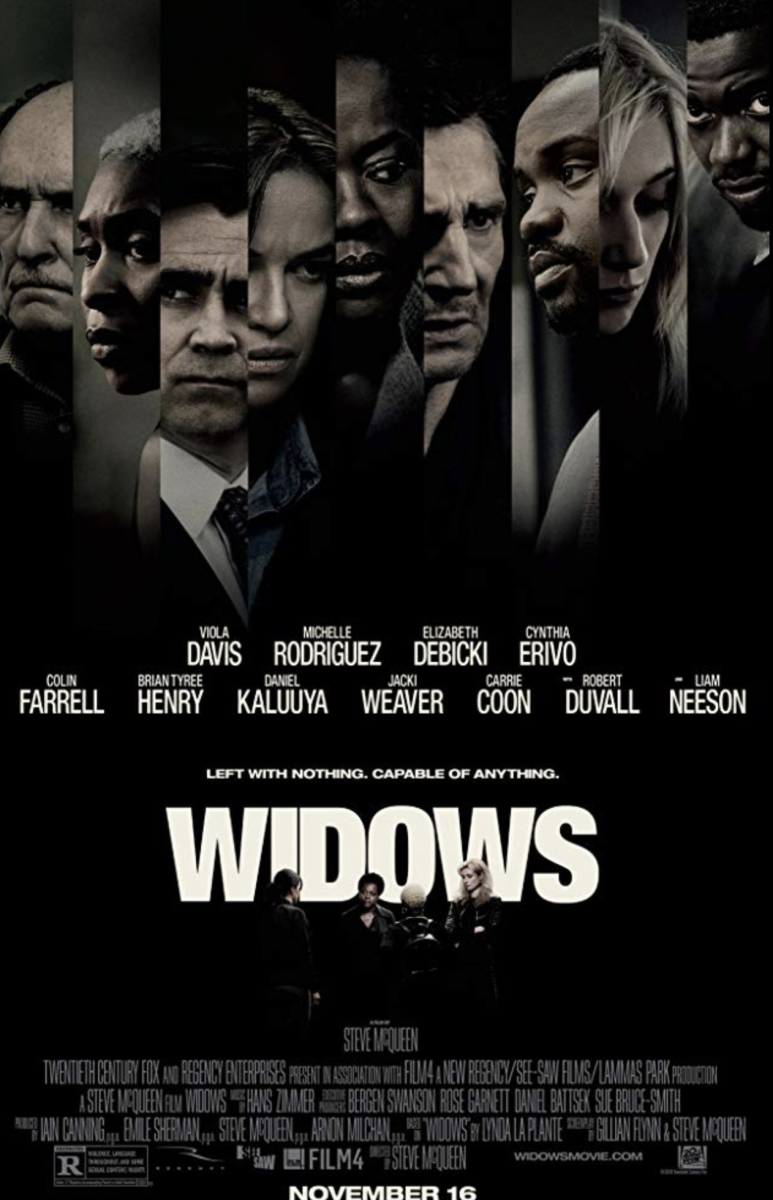
_This review contains spoilers for the 2018 movie “Widows.”_
“Widows” begins, as many good movies do, with a scene that reaches beyond the screen and takes hold of the viewer. Wasting no time getting the ball rolling, the grand opening is a lengthy cross-cutting sequence between a group of men’s failed criminal operation and the impact it has on their wives. Trying their best to mourn without anger, the women are soon rounded up by Viola Davis, who sports a trenchcoat and convinces them to carry out the heist of their late husbands.
This is an irresistible setup that proves not all good movies need to be great. Writer-director Steve McQueen (“12 Years a Slave”) and co-writer Gillian Flynn (“Gone Girl”) nearly strike the perfect balance between commercial entertainment and art-house fare. Their sensibilities combine to deliver a vision of contemporary Chicago that is observant of its socioeconomic spectrum while still managing some twists and turns. In his relentless visual style and with a tinge of cynicism, McQueen lightens up a bit and makes his most accessible film to date.
As is the case with films that have four main protagonists, screen time is divided between the characters. With a narrative as fragmented yet overstuffed as this one, some viewers might be left wanting to know more about them and their inner lives. This is no fault of the women who lead the film. Davis is the obvious lead, bringing her signature blend of emotional intensity and warrior-like ferocity to the part, but Elizabeth Debicki also stands out in her role with a satisfying arc. She, like every character in the film, must grapple with the effects of normalized violence and abuse as a means of living.
Forced to take their fate into their own hands, the team of women, including action-star Michelle Rodriguez and stage actress Cynthia Erivo, accept the dangerous job because it’s the only option left. In this noirish territory, it’s difficult to apply a moral compass to the characters as there is no clear distinction between good and evil. There are no heroes or villains in the film — everyone comes from a different background and chooses to act in order to secure themselves independently.
This is the most somber aspect of the film that might lessen the excitement that audiences have come to expect from the genre, but the idea that all the characters are broken or leveled by the city’s political system makes for thrilling drama. One scene about midway through the movie tracks Colin Farrell as a politician on the campaign trail discussing a neighborhood’s turmoil while driving away from it. The camera rests on the outside of the car as it slowly makes its way from the slummy side to the classy townhouses. It’s these visual flourishes that only McQueen would think of to capture the economic divide amongst his characters and the actual people of Chicago.
With a great ensemble cast including Liam Neeson, Robert DuVall, Carrie Coon, Jacki Weaver, Brian Tyree Henry and Daniel Kaluuya, “Widows” is studio entertainment done right. Whether or not the film goes beyond some surface-level commentary on the state of Chicago’s politics, it’s still a timely look at how years of injustice can corrupt the lives of those who have been wronged by social systems.
_Edited by Siena DeBolt | [email protected]_